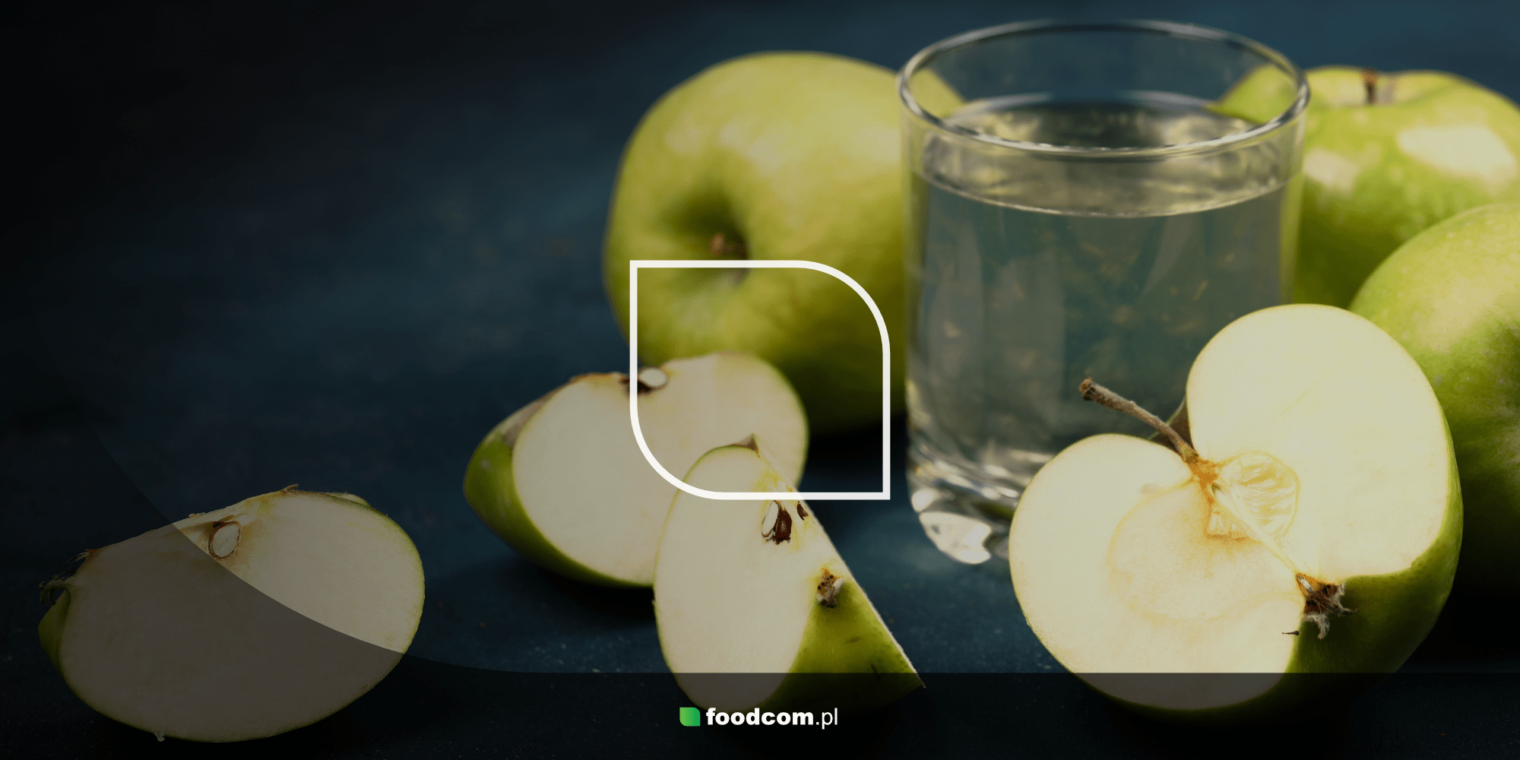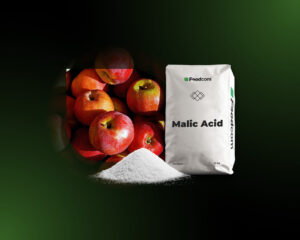-
- Malic Acid is an organic chemical compound that occurs naturally in some fruits and vegetables.
-
- It is used as a preservative, color stabilizer and flavor enhancer.
-
- Malic Acid is used in the production of canned fruits, carbonated beverages, jams, chewing gum, candies, dressings and sauces.
-
- It is also used in the wine, animal feed, cosmetics, pharmaceutical and chemical industries.
What is malic acid?
Malic Acid is an organic chemical compound that belongs to the dicarboxylic acid group. It is a naturally occurring acid found in unripe fruits and vegetables such as apples, grapes, berries, lemons, oranges, broccoli, tomatoes and rhubarb, to name a few. The name comes from the Latin word malum, meaning apple, which is due to its natural origin.
Because of its properties, Malic Acid can be used as a preservative, acidity regulator, color stabilizer and flavor enhancer. It is a food additive with the designation E296. Where is Malic Acid used? Read on and find out!
Malic Acid production
Obtaining Malic Acid from natural plants is expensive, so it is usually produced synthetically on an industrial scale. It is obtained by chemical hydration of maleic or fumaric acid under high temperature and pressure.
Properties of Malic Acid
Malic Acid is in the form of a white, crystalline granule. It has a mild, acidic or sour taste and is practically odorless. It is highly soluble in water, but has a lower hygroscopic index than Citric Acid. It is used in the food industry as one of the most effective substitutes for Citric Acid. Malic Acid has a high rate of degradation by microorganisms such as yeast.
This compound has many valuable properties and effects, such as inhibiting bacterial growth, which has a preservative effect, exfoliating, whitening, and regulating the acidity of other substances.
Malic Acid vs. apple cider vinegar
Malic Acid is often confused with apple cider vinegar, but they are not the same substance. Malic Acid is an organic chemical compound found in fruits and vegetables, while apple cider vinegar is obtained as a product of natural fermentation of plant material. What they have in common is that Malic Acid is a component of apple cider vinegar.
Malic Acid – applications
In the food and beverage industry, Malic Acid is commonly used as a preservative ( E296). It is also commonly used as a sweetener or astringency enhancer in fruit and vegetable juices, iced tea powders, lemonades, jams, chewing gums and candies. It prolongs the release of fruit flavors and gives the impression of a stronger aroma. It also improves and preserves the flavor of dressings, sauces and mayonnaise by preventing fats from going rancid. In the wine industry, Malic Acid is used as a base for malolactic fermentation, allowing producers to make wines with a milder taste.
Malic Acid is also used as an ingredient in animal nutrition. In pigs, the product has shown positive effects on piglet weight gain, lower mortality and less diarrhea. In cattle and sheep diets, Malic Acid helps promote growth, increase milk production, increase overall productivity and improve feed efficiency.
In the cosmetic industry, Malic Acid is used in self-tanning creams, soaps, acne products and anti-aging creams for its pH-regulating properties. In low concentrations (up to 5%) it has a moisturizing and brightening effect, while in higher concentrations it gently exfoliates and softens the thickened skin layer. Its exfoliating properties are used in cleansing gels and facial scrubs. Malic Acid is also used in mouthwashes and toothpastes as it reduces the taste of other chemicals.
In the pharmaceutical field, it is used to treat dry mouth, chronic fatigue and fibromyalgia. It is also an ingredient in syrups and tablets.
Malic Acid also finds its uses in the chemical industry. It is used in chemical syntheses to obtain other compounds. Malate, on the other hand, the ionized form of Malic Acid, is an intermediate in the Krebs cycle.
Why Foodcom?
Our great team of Sales Support will help our Traders conduct the contract and business deals in a smooth and efficient way to ensure the best quality service to all our Business Partners. Our logistics team will take care of transportation and the financial department will be responsible for all matters connected with the financial part of the deal. Do not hesitate! Contact us.




![What’s new in the chemical industry? Market overview and analysis [April 2025] What’s new in the chemical industry? Market overview and analysis [April 2025]](https://foodcom.pl/wp-content/uploads/2025/04/Global-Report-szablon-pod-bloga24-1-600x300.png)




